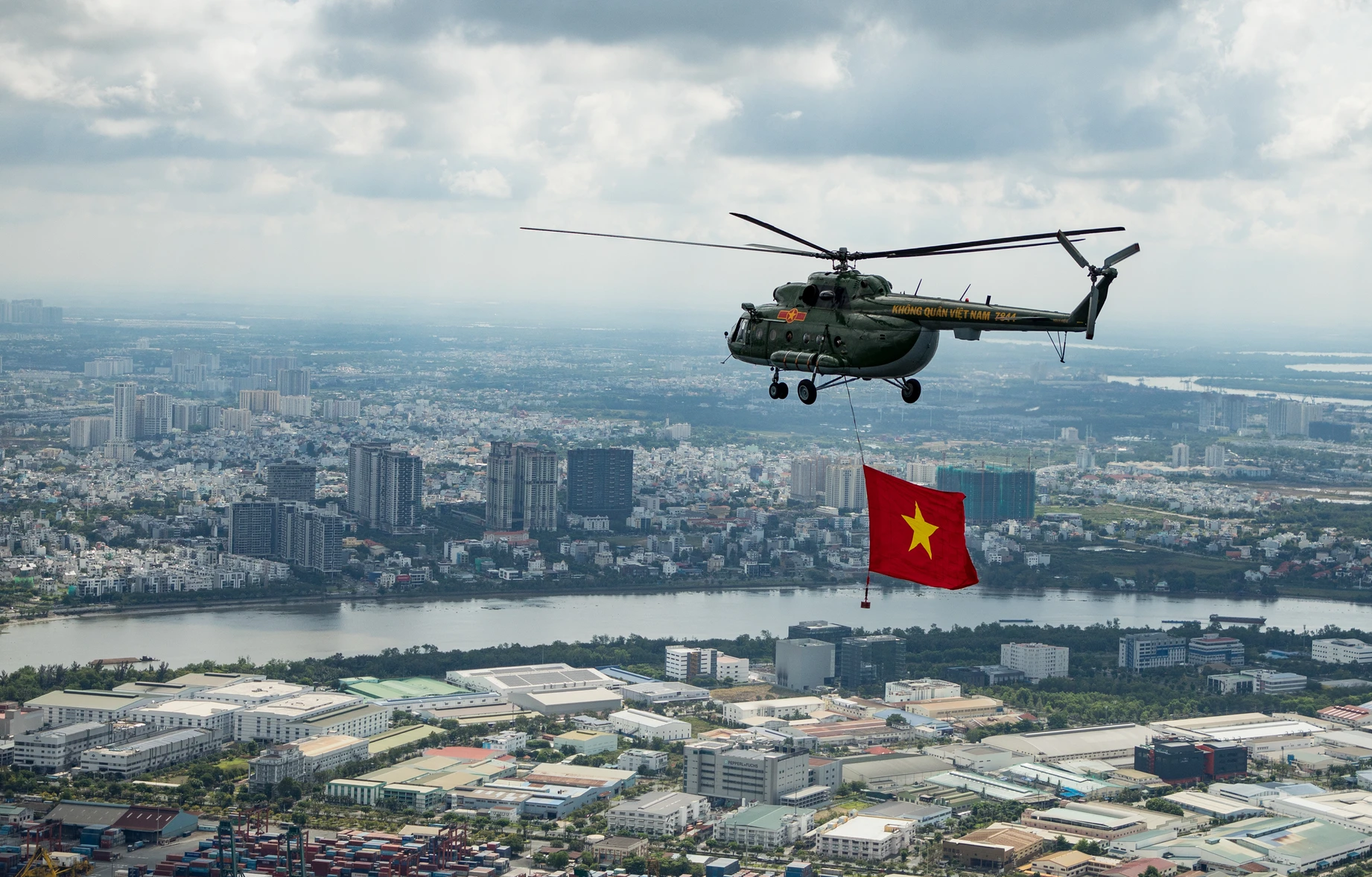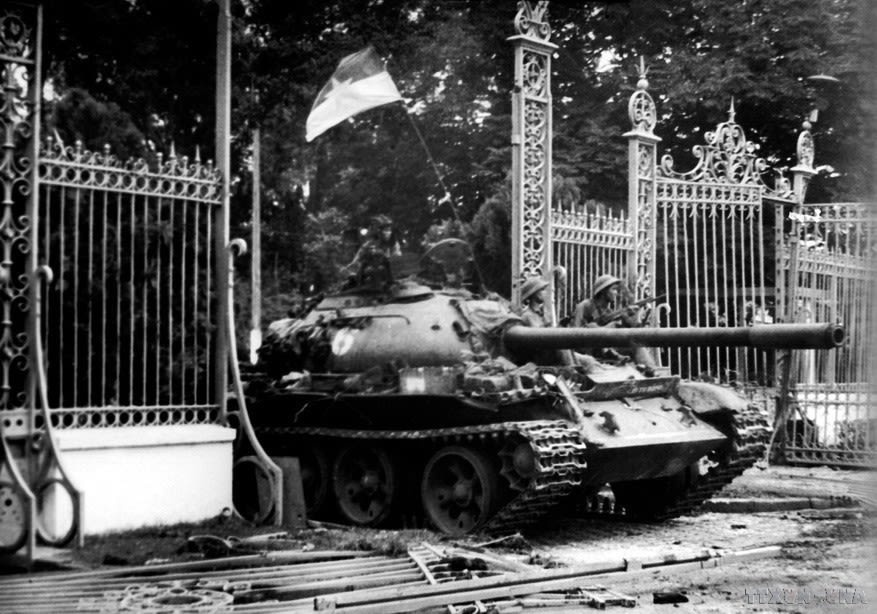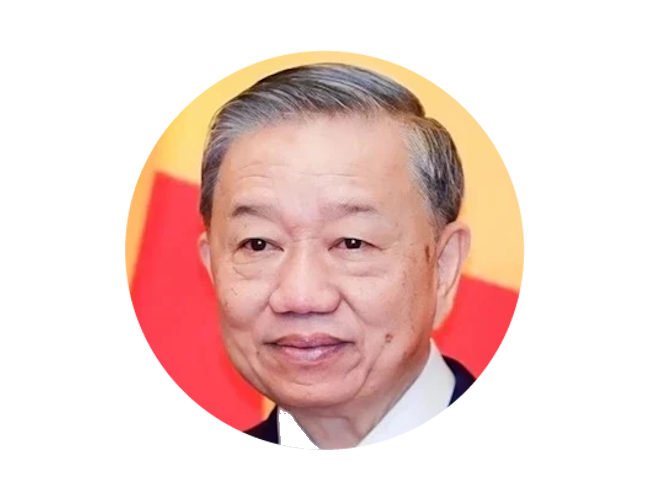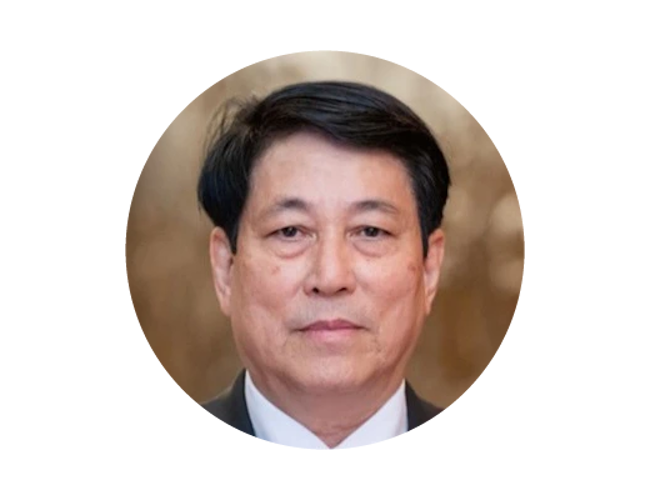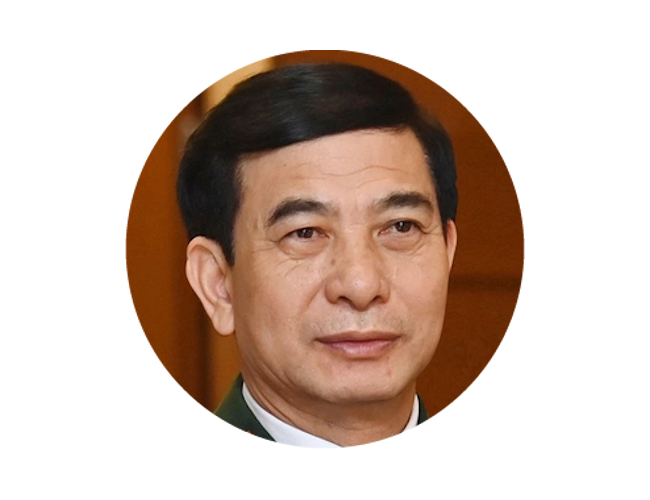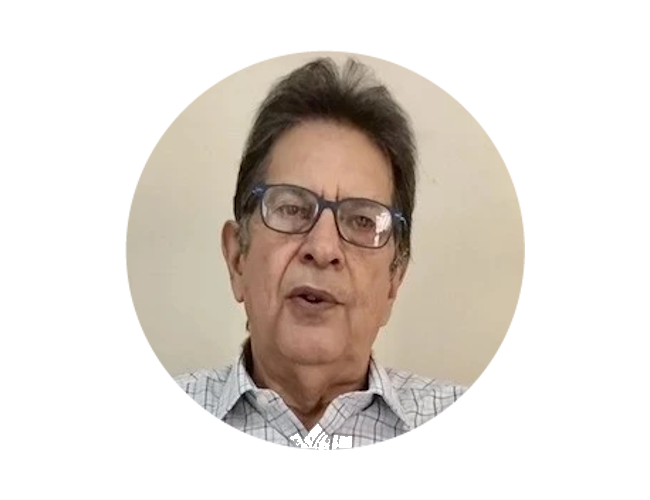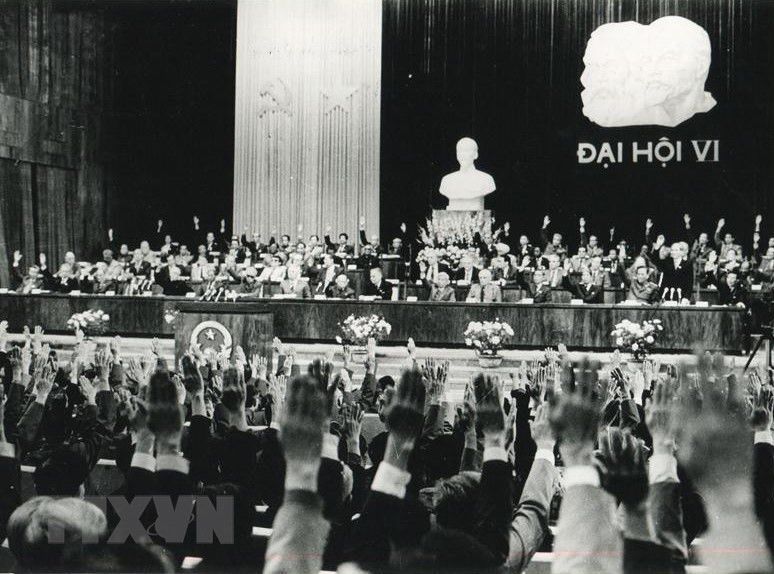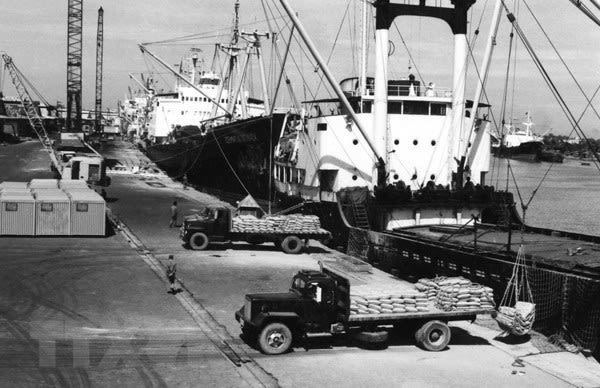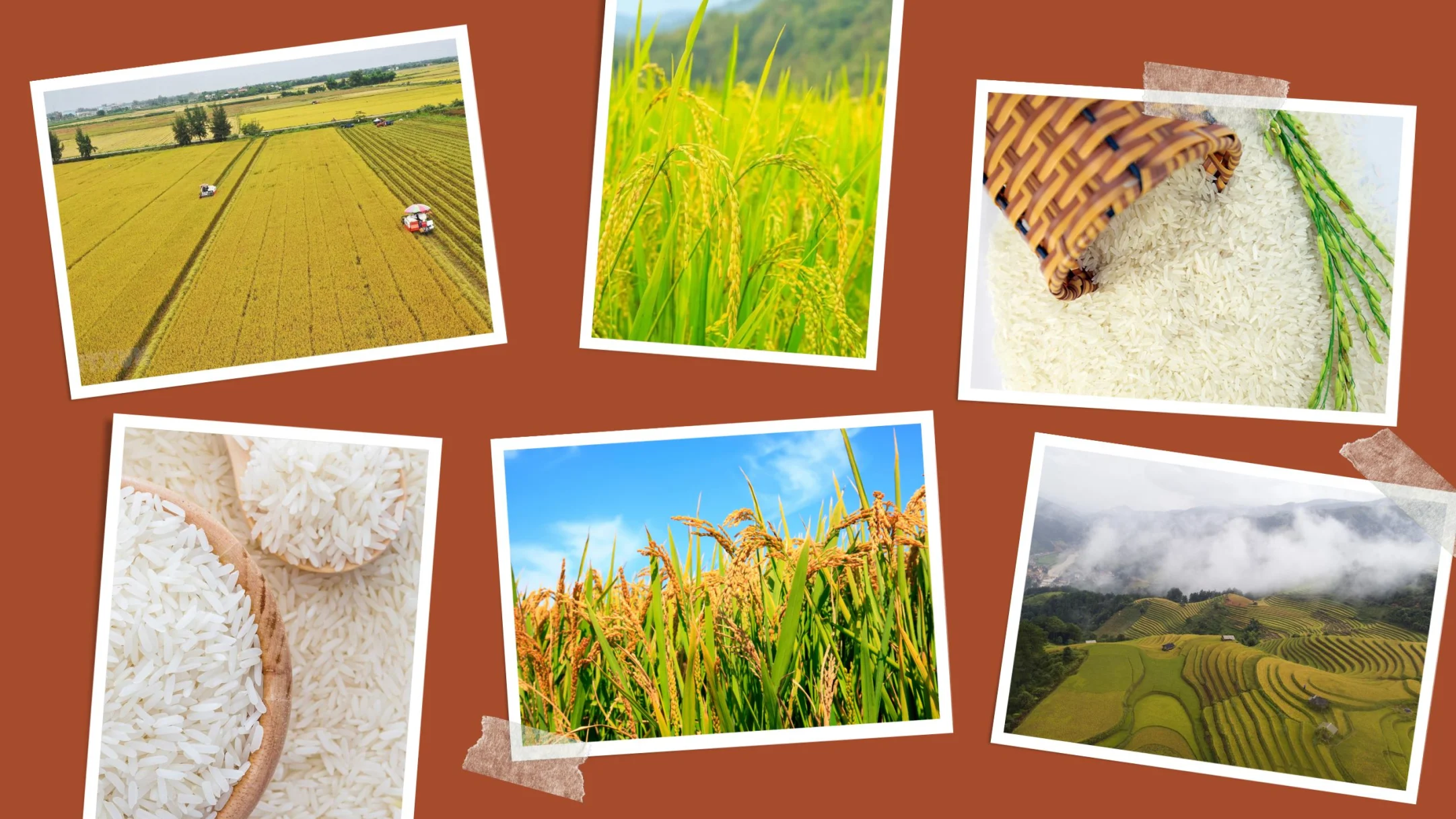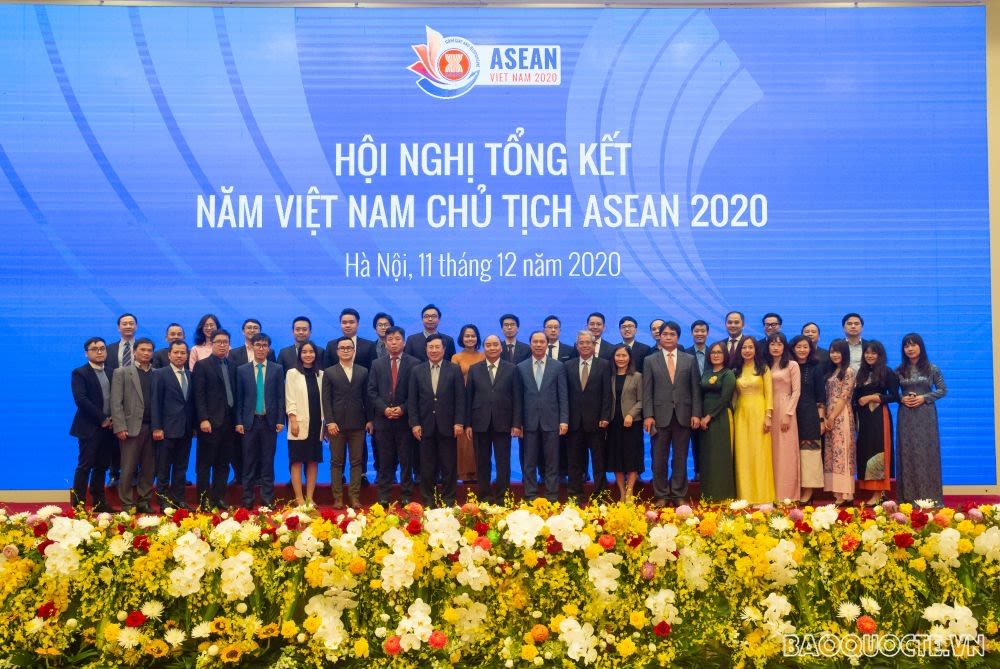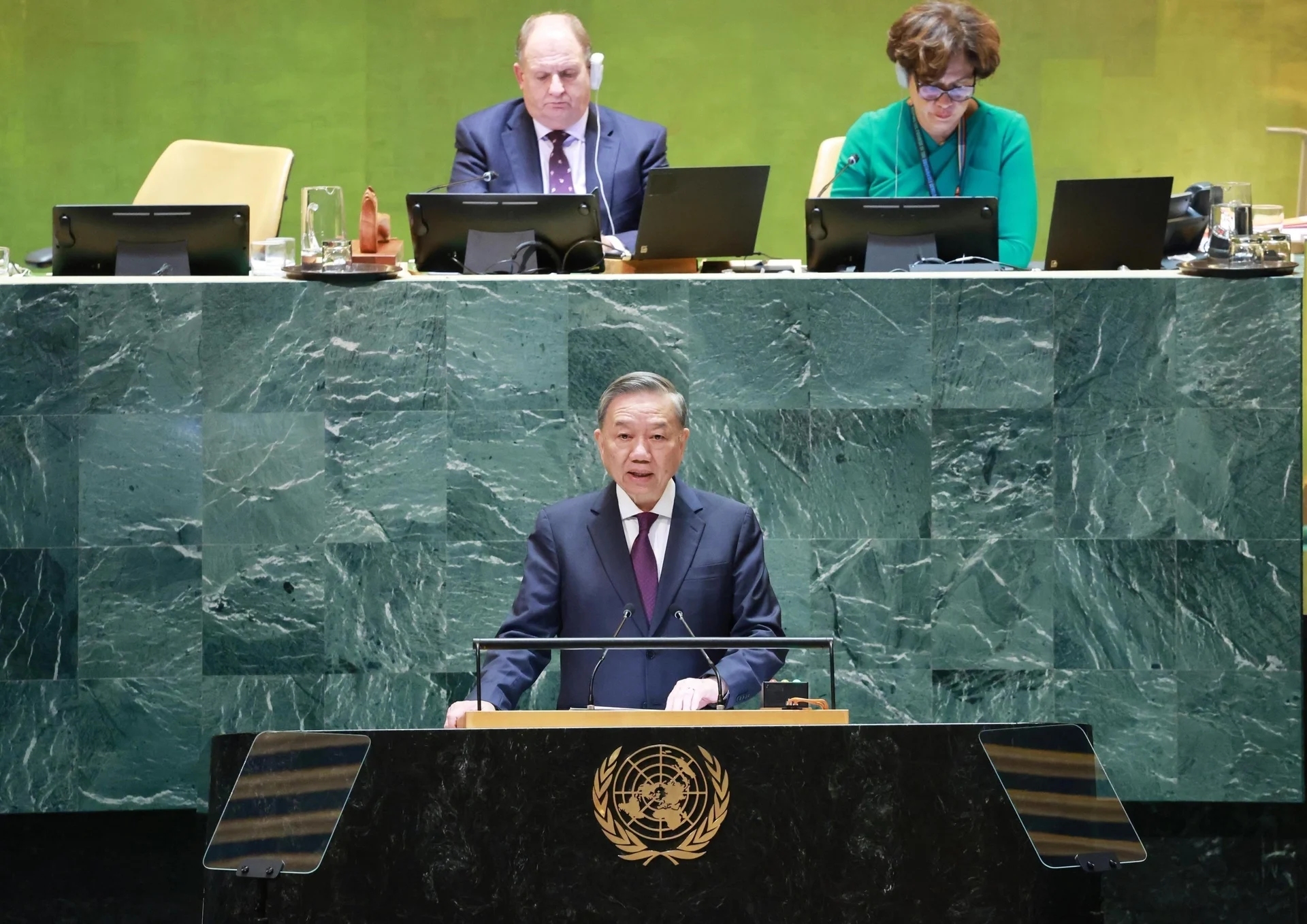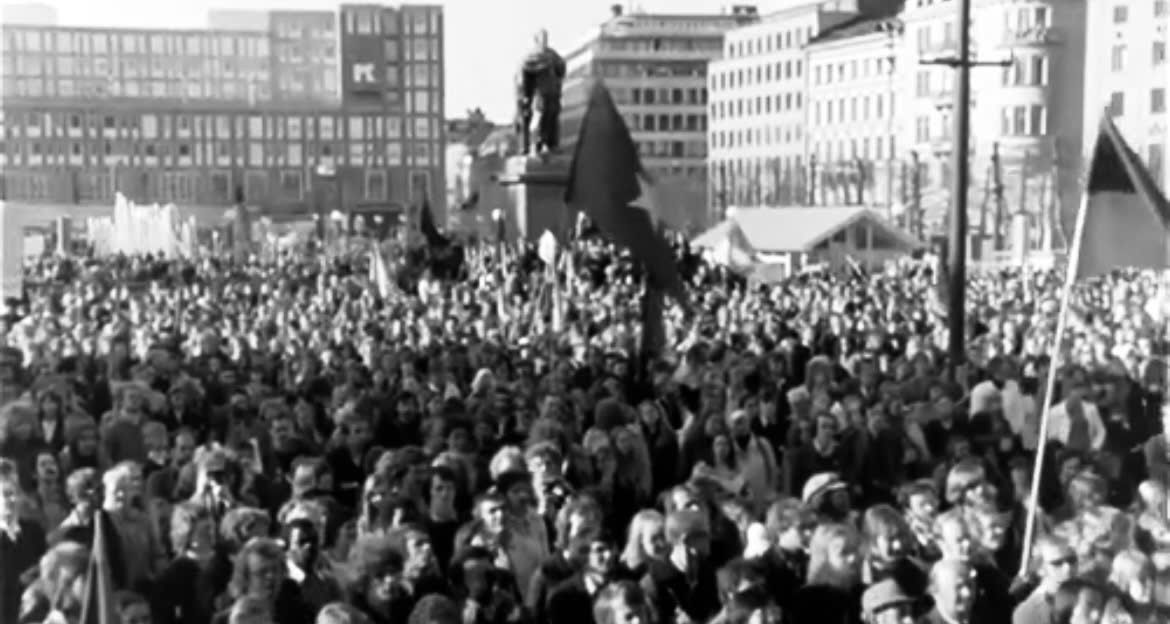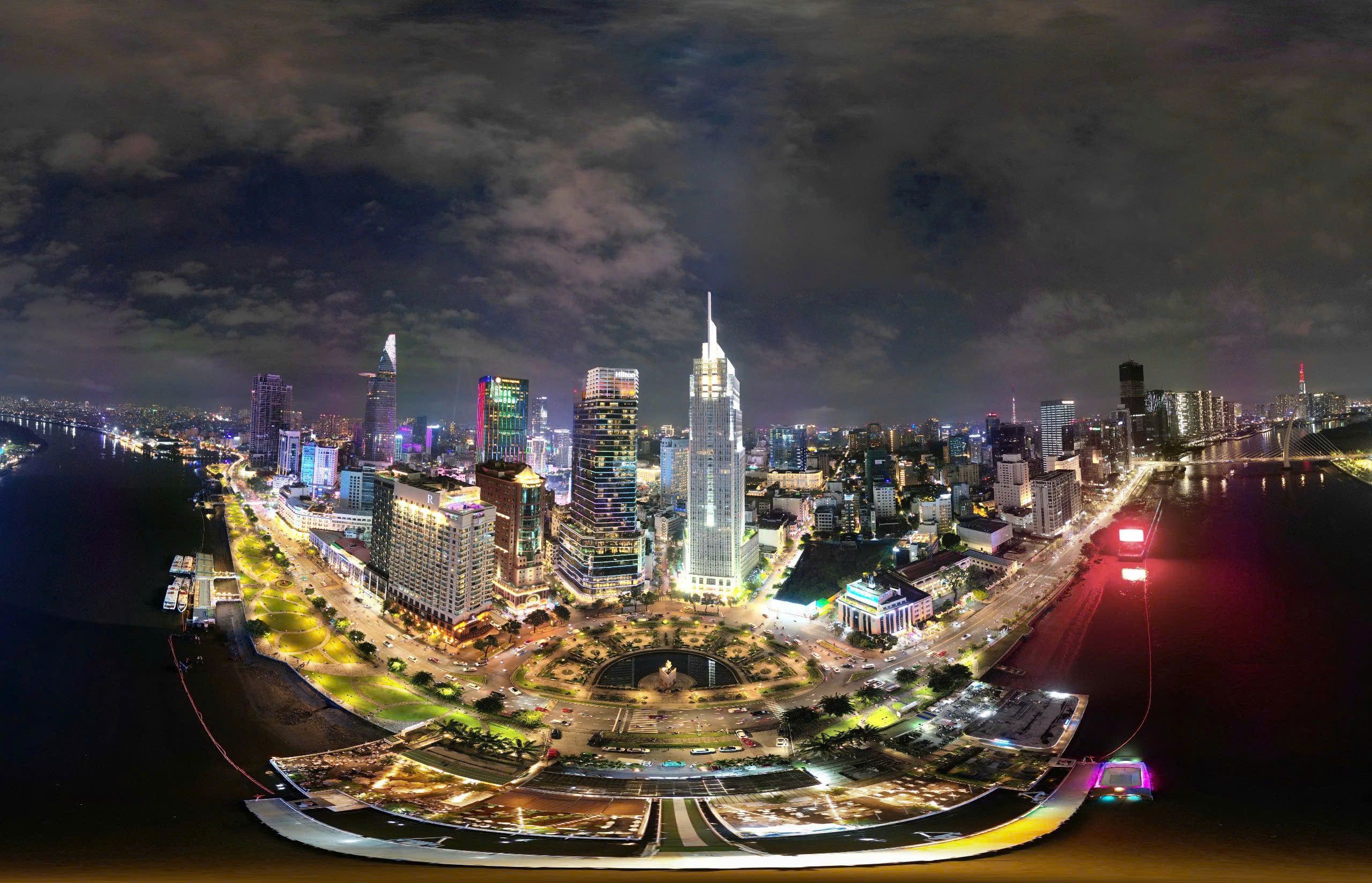From historical victory to miracle of development
50 years of a national journey
Half a century has passed since Vietnam officially achieved complete peace throughout its territory, entering the process of national recovery, construction and development. Since then, under the leadership of the Communist Party of Vietnam, the people have been writing “a new epic – a symphony of renewal, integration, development and the will to rise strongly in the 21st century”.
THE GREAT VICTORY OF SPRING 1975
The Epic of the 20th Century
The moment the liberation flag flew over the roof of the Independence Palace at noon on April 30, 1975, marked a great historical milestone – the Ho Chi Minh Campaign was completely victorious.
Not only that, this victory “permanently ended the domination of more than half a century of imperialism in Vietnam, making the Fatherland forever independent, unified and leading the whole country to socialism” as affirmed in the Resolution of the 4th National Congress of the Communist Party of Vietnam.
A tank enters the Independence Palace at noon on April 30, 1975. (Photo: Mai Huong/VNA)
A tank enters the Independence Palace at noon on April 30, 1975. (Photo: Mai Huong/VNA)
In his recent article entitled ‘Vietnam is one, the Vietnamese people are one’, Party General Secretary To Lam stressed that the victory on April 30, 1975, not only marked the end of the longest and fiercest war in the modern Vietnamese history, but also became a brilliant milestone in the journey of national construction and defence.
“It was a victory of belief, the aspiration for independence, freedom, and national reunification; a victory of the strength of the great national unity under the wise leadership of the Communist Party of Vietnam; a victory of the truth that “Nothing is more precious than independence and freedom” and of the enduring patriotism, fighting spirit, and the eternal indomitable will of the Vietnamese people, along with progressive forces and peace-loving people worldwide,” he wrote.
From then on, the Vietnamese people entered the task of national reconstruction and socio-economic development with a joyful, excited and positive spirit. However, this was not an easy task when the country continued to face serious challenges.
The war was over, but it still left many terrible consequences: devastated infrastructure, exhausted economy, unemployment and poverty. Hostile forces continued to seek to encircle and embargo, aiming to sabotage the peace and unity that the Vietnamese army and people had worked so hard to achieve.
At the southwestern and northern borders, the army and people continued to fight to protect the national sovereignty and territorial integrity. Meanwhile, the centralised bureaucratic subsidy planning mechanism was no longer suitable for the current situation. These causes have plunged the country into a serious economic crisis, threatening social stability.
"The victory of April 30, 1975 was the achievement crystallised from the ideals and iron will of a nation who would never be subjdued, the blood and sacrifice of millions of Vietnamese people, the love of the homeland, mettle and confidence in victory, and determination to never retreat."
General Secretary To Lam
"Half a century may have passed, yet the profound historical significance and enduring lessons of the historic victory of April 30, 1975 remain deeply relevant to Vietnam’s foreign policy, especially in shaping peace and building the nation."
President Luong Cuong
"This victory was not merely a military feat but a testament to the indomitable spirit of the Vietnamese people and their unwavering commitment to national reunification and peace."
Minister of National Defence General Phan Van Giang
Vietnam’s April 30, 1975 victory in its struggle for independence and the Soviet Union’s May 9, 1945 triumph in the Great Patriotic War stand as two of the most glorious milestones in the 20th century.
Secretary of the Communist Party of Chile Central Committee and head of its Commission for External Relations Claudio De Negri
The 1975 Spring Offensive was a watershed moment in Vienam’s modern history, embodying the courage, unity, and unyielding resolve of the Vietnamese people under the sound leadership of the Communist Party of Vietnam, guided by President Ho Chi Minh’s teachings.
Former Cuban Ambassador to Vietnam and Vice President of the Cuba–Vietnam Friendship Association Fredesmán Turró González
The April 30 victory is a symbol of courage and steadfast will in the struggle for national freedom and independence of the Vietnamese army and people. It demonstrates the unconditional support of international friends for Vietnam’s just cause. This victory is the enduring foundation of the Russia-Vietnam friendship that has been built over many decades.
Russian Ambassador to Vietnam Bezdetko Gennady Stepanovich
DOI MOI
The Light from the 6th Congress Paves the Way for Comprehensive Development
In that context, the Party had to ponder, think, explore, and choose to gradually perfect its guidelines, viewpoints, and impleentation organisation, so that it could follow the general rules and be suitable to the specific conditions of Vietnam.
The process of partial renewal took place with pilot models such as agricultural contracting in Vinh Phuc, Hai Phong; the issue of purchasing food from farmers according to the market mechanism in Ho Chi Minh City. The success of these models became an important premise leading to the comprehensive renewal process at the sixth National Party Congress.
The congress took place in Hanoi from December 15-18, 1986. Attending the congress were 1,129 delegates, who represented almost 1.9 million Party members, and 32 international delegations.
Based on the correct analysis and evaluation of the country’s situation, the sixth National Party Congress outlined the renewal policy. The congress affirmed that the comprehensive renewal in all spheres, firstly focusing on economic policy, and maintaining political stability, were premises to ensure the success of the renewal process.
The Congress drew up four major lessons: First, in all of its activities, the Party must thoroughly grasp the idea “The people are the root”, establish and promote the working people’s right to mastery. As the ruling party, the Party must pay special attention to strengthening its linkages with the people. All polices of the Party must originate from the working people’s interests.
Second, the Party always proceeds from reality, respects and acts in line with objective rules.
Third, it was a must to combine the nation’s strengths with the era’s strengths amid new conditions.
Fourth, the Party must be strengthened to be able to perform the political task of a ruling party that leads the people in conducting socialist revolution.
Exporting rice at Saigon Port (Photo: VNA)
Exporting rice at Saigon Port (Photo: VNA)
The urgent issue was to enhance the Party’s combating and leadership capacity. The principle of concentrated democracy must be maintained in Party activities as well as its leadership of socio-economic development.
In particular, the Congress documents emphasised the requirement for innovation in thinking, organisation, cadres, and Party leadership. In addition, the 6th Congress also recognised economic renovation as the focus, paving the way for innovation in the political system and other areas in society.
In that spirit of determination, many decisions that changed the socio-economic situation were made, notably Resolution No.10-NQ/TW dated April 5, 1988, of the Politburo on renewal in agricultural economic management (Contract 10). After only two years of implementing Contract 10, Vietnam ensured food security.
In 1989, Vietnam began exporting rice, marking a significant shift from a food-scarce country to a global rice exporter. The nation initially exported 1.4 million tonnes of rice, earning 322 million USD. By 1990, they crossed the 1 billion USD export milestone with 4.6 million tonnes. This achievement positioned Vietnam as a major player in the global rice market.
Vietnam has established as a major player in the global rice market.
Vietnam has established as a major player in the global rice market.
The sixth Congress also made strategic decisions that opened the way for international integration when emphasising “actively developing economic, scientific and technical relations with other countries, international organisations and foreign private sectors on the principle of equality and mutual benefit”.
This affirmed that Vietnam’s development path cannot be separated from the general trend of the world and human civilisation. The opening-up process contributes to expanding the country’s development space, mobilising resources and international solidarity to promote key economic sectors that are prioritised domestically.
INTERNATIONAL INTEGRATION
From Embargo to A Trusted Partner
Until the late 1990s, the world still mentioned Vietnam as the name of a war. In those days, Vietnam’s Deputy Foreign Minister Le Mai made an awakening statement “Vietnam is not a war, Vietnam is a country.”
Today, Vietnam is telling the world a story of successful renewal - a great escape from poverty: transitioning to a market economy, bringing the country from the world’s poorest country, severely devastated by wars, to a middle-income country. In addition, tens of millions have moved from low-productivity agricultural and rural sectors to higher-productivity industrial, commercial and service sectors and lifted themselves out of poverty.
Economic reform and international integration led by the Party have achieved positive results. From being surrounded, embargoed and isolated by many countries, Vietnam has become a friend, trusted and responsible partner of the international community.
Delegates at a meeting to review Vietnam's 2020 ASEAN Chairmanship in Hanoi on December 11, 2020 (Photo: baoquocte.vn)
Delegates at a meeting to review Vietnam's 2020 ASEAN Chairmanship in Hanoi on December 11, 2020 (Photo: baoquocte.vn)
In particular, the normalisation of Vietnam-US relations in 1995 not only initiated a good relationship between the two countries in the next three decades, but also affirmed that Vietnam’s open foreign policy was correct. Vietnam has become a member of a series of major international organisations and forums in the region and the world, such as ASEAN, APEC, and WTO, and has signed a series of cooperation agreements in many fields.
This is a solid foundation, creating a breakthrough for Vietnam in recent years, demonstrated through economic and diplomatic achievements and the ability to respond to fluctuations and crises.
In 40 years of renewal, Vietnam's international integration process has achieved important results of historic significance. From an isolated and embargoed country, Vietnam has established diplomatic relations with 194 countries worldwide and formed Strategic Partnerships and Comprehensive Partnerships with 34 nations, including all permanent members of the UN Security Council and major countries. Vietnam has been an active member of over 70 regional and international organisations, with deep, substantive political, defence, and security relationships.
From a poor, backward economy at a low level of development and under embargo and sanctions, Vietnam has become one of the world's 34 largest economies, with an economic scale nearly 100 times larger than in 1986 and per capita income rising from under 100 USD to nearly 5,000 USD.
Party General Secretary and President To Lam speaks at the General Debate of the 79th session of the UN General Assembly on September 24, 2024 (local time) (Photo: VNA)
Party General Secretary and President To Lam speaks at the General Debate of the 79th session of the UN General Assembly on September 24, 2024 (local time) (Photo: VNA)
Engagement in multi-tiered international economic cooperation agreements and linkages, particularly 17 free trade agreements (FTA) has connected Vietnam with more than 60 key economies, enabling deeper participation in global production and supply chains, positioning Vietnam in top 20 countries with the largest trade volume in the world, top 20 economies attracting the biggest volume of foreign investments, and top 10 countries receiving the largest remittances globally.
People’s lives have improved significantly as per capita income increased from less than 100 USD to nearly 5,000 USD, and the poverty rate has decreased sharply.
Vietnam has completed the Millennium Development Goals early. Its political, economic, cultural, social, scientific - technological, defence and security potential has been constantly improved; it has actively contributed to maintaining peace and stability in the region and the world.
Vietnam’s economy has shown its resilience to unprecedented epidemics and natural disasters. These undeniable achievements help Vietnam accumulate strength and power for breakthrough development in the next period - a new era, an era of prosperity, strength, as well as realise its goals of building a society of wealthy people, a strong country, democracy, justice and civilisation.
In today's rapidly changing world, each state plays a vital role in the grand orchestration of our era. Vietnam is making every effort to move forward toward a future of peace, stability, prosperity and sustainability - not only for our own people but also for all nations worldwide. This is Vietnam’s vision, goal and strong commitment to the international community, today and tomorrow.
Remarks by Party General Secretary and President To Lam at General Debate of UNGA 79th session on September 24, 2024
To fulfil that mission, the Party has set top priorities: by 2030, Vietnam will become a developing country with modern industry and high average income; by 2045, it will become a developed socialist country with high income; strongly arouse national spirit, spirit of self-reliance, self-confidence, national pride, aspiration for national development; closely combine national strength with the strength of the times.
Therefore, from this point on, the Party has carried out many revolutionary reforms in renewal, arranging the apparatus in the direction of “streamlining - compactness - strength - efficiency - effectiveness – efficiency”. At the same time, the Party has issued many important resolutions to create the premise for the rapid and sustainable development of the country, notably Resolution No.59-NQ/TW dated January 24, 2025, of the Politburo on International Integration in the New Situation. Resolution No.59-NQ/TW, Resolution No.18-NQ/TW and Resolution No.57-NQ/TW were identified by the Party and reaffirmed by Party General Secretary To Lam in his article highlighting Vietnam’s rise to prominence in international integration.
In the article, Party General Secretary To Lam has stressed: “Stepping into the renewal period, our Party determined that to achieve peace and development, it is a must to open the door to the outside world and cooperate with other nations, with international integration representing the highest forms and level of international cooperation. In the other word, international integration means “placing our country in the mainstream current of the times, beating with the same rhythm, and breathing the same air of the era”, enhancing our strength through global connections.”
After half a century of national reunification and 40 years of renewal, the country faces a great opportunity to “move towards the glory of independence, freedom, happiness, prosperity and longevity”. This path still has many difficulties and challenges, but under the Party’s brave and talented leadership, which has been proven in revolutionary practice, Vietnam has the right to believe that success will come in the near future.
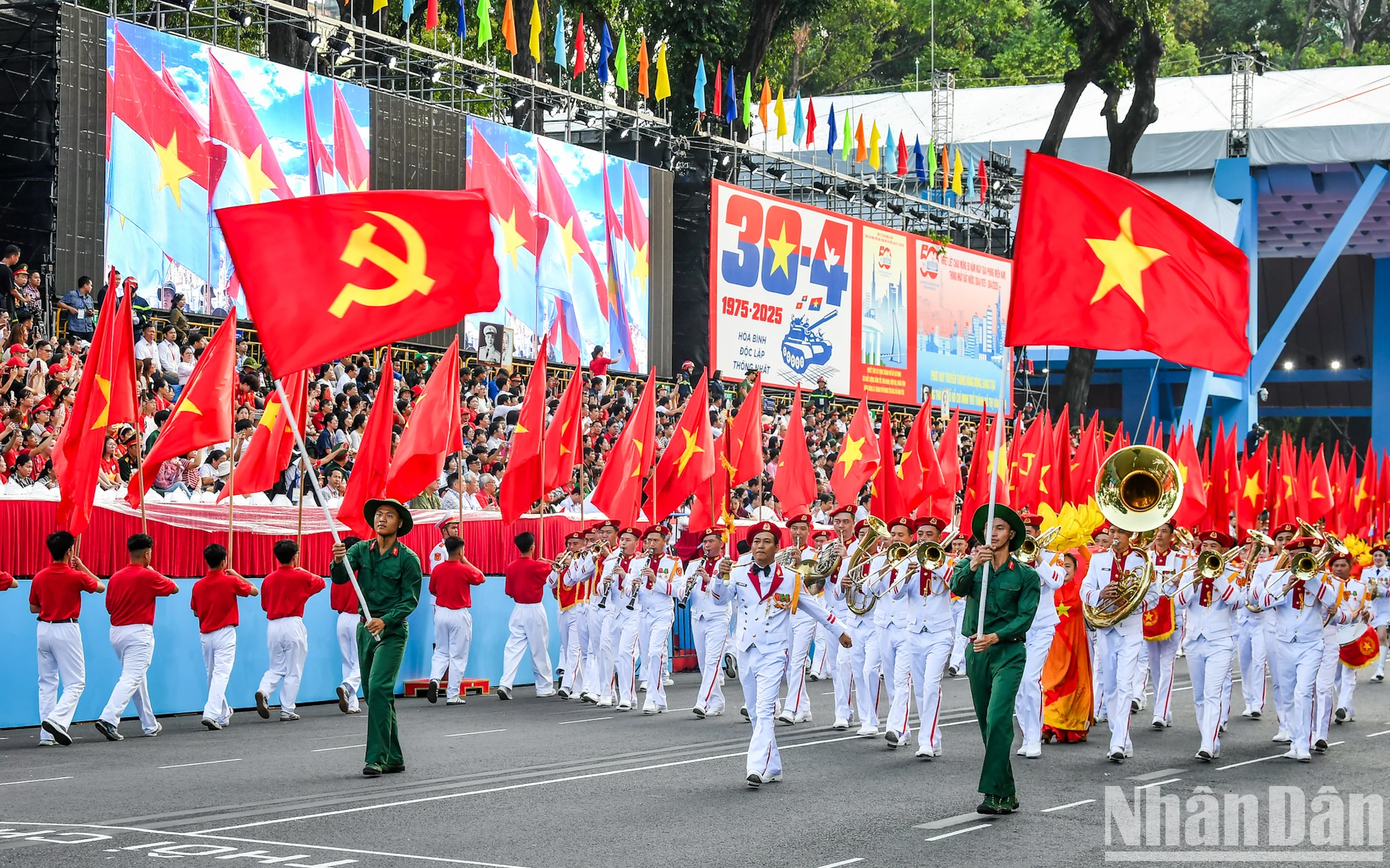
TIMELINE
Milestones Marking Vietnam's International Integration Process
September 20, 1977: Vietnam officially became the 149th member of the United Nations
July 28. 1995: Vietnam became a full member of ASEAN
November 14, 1998: Vietnam was admitted to the Asia-Pacific Economic Cooperation Forum (APEC)
2006 and 2017: Vietnam successfully hosted APEC in Hanoi in 2006 and Da Nang in 2017
January 11, 2007: Vietnam joined the World Trade Organisation (WTO)
January 1, 2008 to December 31, 2009: Vietnam for the first time performed its role as a non-permanent member of the UN Security Council for the 2008-2009 tenure
January 1, 2010: Vietnam played host as 2010 Chairman of ASEAN
2013: Vietnam elected to the United Nations Human Rights Council (UNHRC) for the 2014-2016 tenure
May 27, 2014: Vietnam officially began participating in United Nations peacekeeping operations
December 2018: Vietnam elected as a member of the UN Commission on International Trade Law (UNCITRAL)
February 27-28, 2019: Vietnam hosted the second summit between the Democratic People’s Republic of Korea (DPRK) and the US
June 7, 2019: Vietnam once again elected as a non-permanent member of the UNSC for the 2020-2021 tenure
2020: Vietnam assumed 2020 ASEAN Chairmanship
October 11, 2022: Vietnam elected to the United Nations Human Rights Council for the term 2023-2025
November 20, 2024: Vietnam re-elected as a member of the UN Commission on International Trade Law (UNCITRAL) for the 2025-2031 term
Published: April 2025
Content: Phong Vu, Khanh Binh, Thu Hang, Khanh Lan, Hai Dang
Design: Hoa Bui
Photos: NDO, VNA, MoFA
